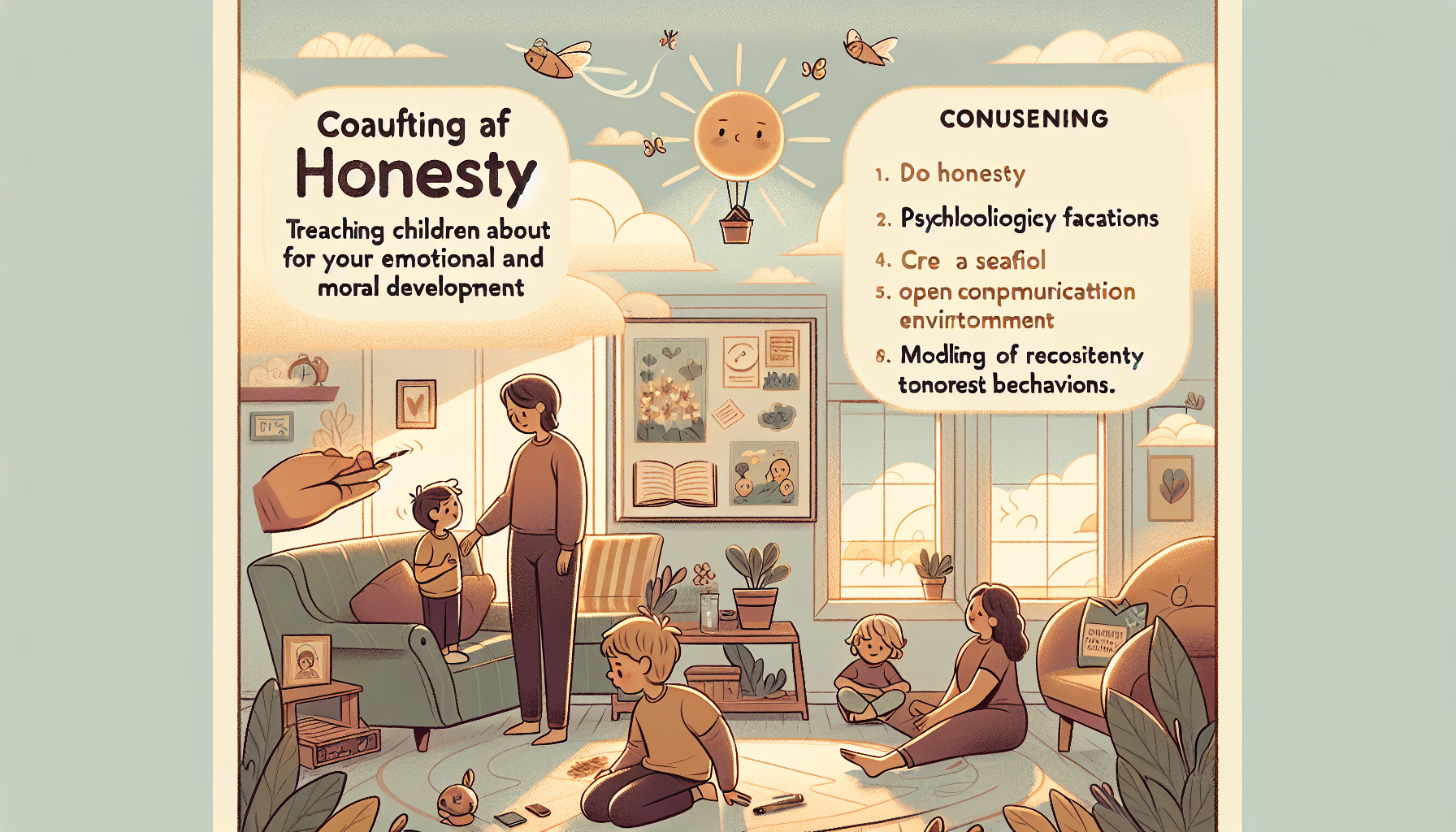“`html
Teaching Kids About Honesty: A Guide for Parents
Honesty is more than just telling the truth—it’s a cornerstone of integrity, trust, and strong relationships. For parents, teaching their kids about honesty is one of the most important lessons they can impart. But how can you nurture truthfulness in your children in a way that feels natural and effective? In this article, we’ll explore why honesty matters, the psychology behind it, and practical strategies parents can use to help their children grow into honest and trustworthy individuals.
Why Is Honesty Important for Kids?
Honesty is a fundamental value that shapes a child’s character and influences their interactions with the world. Teaching kids to be truthful not only helps them build trustworthy relationships but also fosters emotional health and moral integrity.
- Trust and Connection: When children learn to value honesty, they build trust with parents, teachers, and friends. This trust forms the foundation for strong, lasting relationships.
- Emotional Well-being: Being truthful helps children feel secure and reduces the stress that comes with lying or hiding the truth.
- Problem-Solving: Honest communication enables kids to address challenges openly and find constructive solutions rather than avoiding issues.
Understanding the importance of honesty also lays the groundwork for developing integrity—the inner moral compass that guides them to do what’s right even when no one is watching.
The Psychology Behind Honesty in Kids
Honesty is not innate; it’s a learned behavior influenced by cognitive and emotional development. To effectively teach kids about honesty, it’s helpful to understand the psychological factors that shape their behavior.
The Role of Cognitive Development
Young children under the age of five may struggle to differentiate between truth and fantasy. As their cognitive abilities develop, they begin to understand the concept of truth versus lies. By the time children reach school age, they are better equipped to grasp the moral implications of dishonesty.
The Need for Safety and Connection
According to principles of cognitive-behavioral therapy (CBT), children are more likely to be honest when they feel safe and secure in their environment. Fear of punishment or rejection can lead kids to lie as a way to protect themselves. Creating a supportive and non-judgmental atmosphere encourages children to be truthful.
Modeling Behavior
Children are keen observers and often mimic the behavior of adults around them. When parents model honesty and integrity, children are more likely to adopt these values themselves.
Practical Tips for Teaching Kids About Honesty
So, how can you teach your kids to value honesty in a way that resonates with them? Here are some practical strategies that parents can implement.
1. Create a Safe Space for Open Communication
Encourage your child to share their thoughts and feelings without fear of judgment or harsh consequences. When children feel safe to express themselves, they are less likely to resort to dishonesty.
- Instead of reacting angrily to a lie, ask open-ended questions like, “Can you tell me what happened?”
- Validate their feelings and explain why honesty is important in building trust.
2. Lead by Example
Be a role model for honesty in your daily life. Share age-appropriate examples of times when you chose to be truthful, even when it was difficult.
- For instance, if you accidentally receive extra change at the store, let your child see you return it.
- Admit your own mistakes and take responsibility. This shows kids that honesty includes accountability.
3. Praise Truthfulness
Positive reinforcement can go a long way in encouraging honesty. When your child tells the truth, even in challenging situations, acknowledge and praise their courage.
- For example, say, “I’m proud of you for being honest about breaking the vase. That took a lot of courage.”
4. Teach the Value of Integrity
Help your child understand that honesty is not just about avoiding punishment—it’s about being true to themselves and their values. Share stories or books that highlight the importance of integrity and truthfulness.
5. Use Natural Consequences
Rather than punishing dishonesty harshly, allow natural consequences to teach the lesson. For example, if your child lies about finishing their homework and gets a poor grade, discuss how honesty could have helped them avoid the situation.
6. Address Mistakes with Empathy
When your child lies, avoid shaming them. Instead, use the moment as an opportunity to teach. Ask questions like, “What made you feel like you couldn’t tell the truth?” and work together to address the underlying issue.
7. Encourage Problem-Solving
Sometimes, children lie because they feel stuck or overwhelmed. Help them develop problem-solving skills so they can approach challenges honestly and constructively.
- For instance, if your child lies about forgetting an assignment, help them create a homework plan to stay organized in the future.
8. Be Patient and Consistent
Teaching honesty is a gradual process that requires patience and consistency. Celebrate small victories and continue to reinforce the value of truthfulness over time.
Conclusion: The Lasting Impact of Honesty
Teaching kids about honesty is not just about correcting behavior—it’s about shaping their character and helping them grow into trustworthy, empathetic, and responsible individuals. By creating a safe and supportive environment, modeling integrity, and using practical strategies, parents can instill the value of honesty in their children in meaningful ways.
Remember, every small step you take toward fostering honesty in your child has a lasting impact. By prioritizing truthfulness and connection, you’re giving your child the tools they need to navigate life with confidence and integrity.
For more resources on promoting positive behavior and emotional well-being in children, explore other helpful articles on the Child Mind website.
“`

